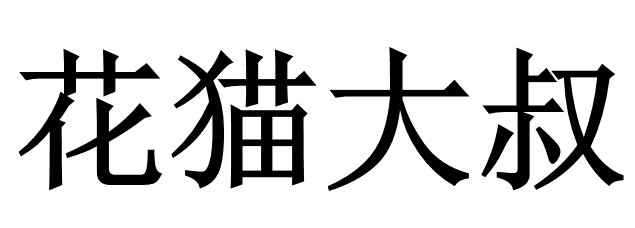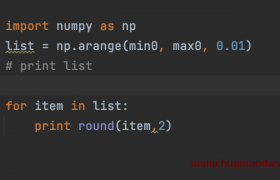美国程序员面试题:
The fundamental theorem of arithmetic states that every natural number greater than 1 can be written as a unique product of prime numbers. So, for instance, 6936=2*2*2*3*17*17. Write a method named encodeNumber what will encode a number n as an array that contains the prime numbers that, when multipled together, will equal n. So encodeNumber(6936) would return the array {2, 2, 2, 3, 17, 17}. If the number is <= 1 the function should return null;
-5
if n is
return
because
10
5
because the prime factors of 10 are 2 and 5 and 5 is the largest one.
6936
17
because the distinct prime factors of 6936 are 2, 3 and 17 and 17 is the largest
1
0
because n must be greater than 1
If you are programming in Java or C#, the function signature is
int[ ] encodeNumber(int n)
If you are programming in C or C++, the function signature is
int *encodeNumber(int n) and the last element of the returned array is 0.
Note that if you are programming in Java or C#, the returned array should be big enough to contain the prime factors and no bigger. If you are programming in C or C++ you will need one additional element to contain the terminating zero.
Hint: proceed as follows:
1. Compute the total number of prime factors including duplicates.
2. Allocate an array to hold the prime factors. Do not hard-code the size of the returned array!!
3. Populate the allocated array with the prime factors. The elements of the array when multiplied together should equal the number.
测试样例:
java实现代码
package com.zzy;
import java.util.ArrayList;
/**
* 更多请关注: http://huamaodashu.com
* Created by hadoopall on 27/07/2018.
*/
public class encodeNumber {
public static void main(String[] args) {
int n =-18;
System.out.println(encodeNumber(n));
}
public static int[] encodeNumber(int n){
ArrayList arrayList = new ArrayList();
if(n <= 1){
return null;
}else {
int i = 2;
while (n>1){
if(isPrimeNumber(i)){
if(n%i==0){
arrayList.add(i);
n=n/i;
}else {
i++;
}
}else {
i++;
}
}
}
int [] encodearray = new int[arrayList.size()];
for (int i = 0; i < arrayList.size(); i++) {
encodearray[i] = (int)arrayList.get(i);
System.out.println(encodearray[i]);
}
return encodearray;
}
//判断一个数是否为素数
public static boolean isPrimeNumber(int num){
if(num == 2){
return true;// 对2单独处理
}
if(num < 2 || num % 2 == 0){
return false; // 识别小于2的数和偶数
}
for (int i =3; i<=Math.sqrt(num);i+=2){
if(num % i == 0){ // 识别被奇数整除
return false;
}
}
return true;
}
}



